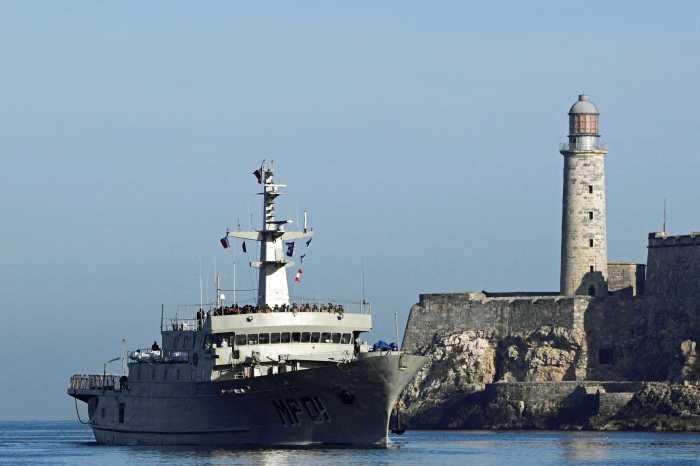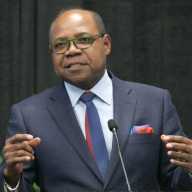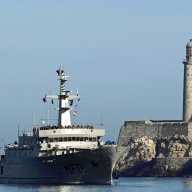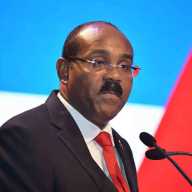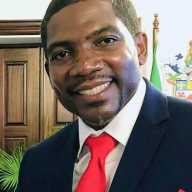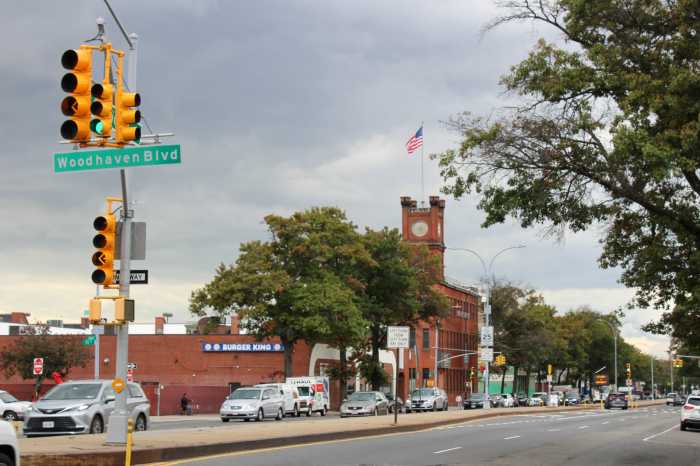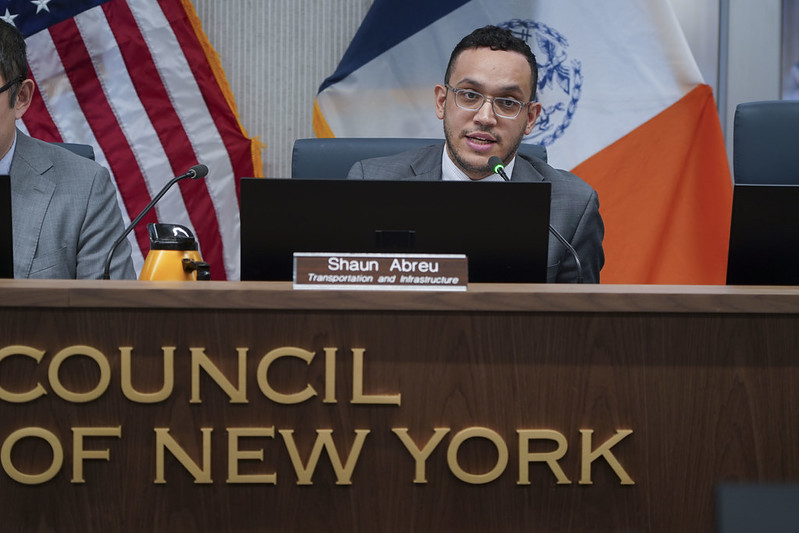Caribbean
The Donald Trump-led US administration has instructed consular officers to consider chronic health conditions when determining visa eligibility for Caribbean and other applicants under the public charge rule.
The new directive from the US Department of State instructs consular officers to deny visas to applicants with medical conditions such as diabetes, cardiovascular disease, obesity, and mental health disorders. The State Department claims that these applicants are more likely to rely on public assistance if they are admitted to the US.
The California-based Haitian Bridge Alliance (HBA) has strongly condemned this action.
HBA Director Guerline Jozef stated that, in their view, if this guidance stands, all immigrants applying for a visa or green card could be affected.
Jozef said that under the new guidance, any manageable illness could become grounds for denial, which the HBA considers arbitrary and contrary to principles of due process, equal protection, and human rights.
According to Jozef, the policy uses illness as grounds for denial and affects vulnerable populations, especially those who have been denied healthcare and opportunity in the past.
“It violates the spirit of US and international legal obligations, and undermines decades of progress toward fairness in our immigration system,” said Jozef, as he called on the US administration to rescind and reconsider the directive, “and reaffirm that health is a human right, not a disqualifier for dignity.”
State Department principal deputy spokesperson, Tommy Pigott, said that it is no secret the Trump administration is putting the interests of the American people first.
“This includes enforcing policies that ensure our immigration system is not a burden on the American taxpayer,” he added.
Guyana
The Guyana government had recently signed a production-sharing agreement for the shallow-water Block S4 offshore Guyana with a group of international companies including QatarEnergy, TotalEnergies, and PETRONAS.
The Ministry of Natural Resources said the award marks another milestone in the country’s ongoing efforts to responsibly develop its hydrocarbon resources and reinforces international confidence in Guyana’s transparent and robust petroleum framework.
“Block S4, located 50 to 100 kilometres off the coast and covering 1,788 square kilometres in water depths ranging between 30 and 100 metres, will be explored in accordance with local regulations and international best practices as we continue to strengthen our position as a responsible and emerging energy producer.”
Natural Resources Minister, Vickram Bharrat said “we are pleased to welcome Qatar Energy, TotalEnergies and Petronas as new partners in Guyana’s petroleum sector.
“This investment demonstrates continued international confidence in Guyana’s transparent and robust licensing framework, and it reflects our government’s commitment to ensuring that the development of our natural resources is done sustainably and for the benefit of all Guyanese.”
The ministry said exploration activities will be conducted in keeping with Guyana’s regulatory requirements and international best practices for environmental protection and resource management.
Haiti
Haiti is facing a dreadful humanitarian, political and security crisis due to gang violence, caused by severe poverty and a series of devastating natural disasters, including most recently Hurricane Melissa.
The country’s justice system has struggled to function effectively as cases are not being tried quickly enough with a majority of the prisoners being held in detention while they await their trial.
According to a recent UN human rights report, several people died “as a result of lack of medical care, unsanitary cells, insufficient food, and limited access to drinking water.”
By the end of September 2025, more than 7,200 men, women, boys, and girls were held in Haitian prisons. Convicted criminals are held together with detainees awaiting trial, and children are often detained with adults. This violates international standards.
Many Haitian prisons are in urban areas where several high-profile breakouts, often led by gang members, have occurred. These incidents have further reduced the capacity of the prison system, leading to severe overcrowding. Some prisons now hold at least three times more people than they were built for.
Conditions in Haiti’s prison have been described by the UN as inhuman and degrading.
Violence in Port-au-Prince, where gangs control 90 per cent of the Haitian capital, has led to numerous courts shutting down, further slowing down the justice system.
Supporting prison reform and improving detention conditions in Haiti has been a key focus of the UN political mission in Haiti to strengthen the rule of law and human rights. The aim is to bring long-term structural reform to address systemic deficiencies in the justice sector.
Jamaica
The Sandals Foundation has donated 156 million in equipment and resources to support the Bustamante Hospital for Children for critically ill neonates, babies and children who are being transferred to the institution from areas that were destroyed by Hurricane Melissa.
A suite of machines and supplies have been purchased by the philanthropic arm of Sandals Resorts International building the capacity of the island’s only specialist pediatric hospital.
“Four of our island’s major pediatric centers have been affected by the hurricane, so here at the Bustamante Hospital for Children, we have made a commitment that we will take the pediatric surgical patients, because we have the surgical specialists, the neonates, and any other sub-specialities such as cardiology, renal patients, and more,” said CMO at the Bustamante Hospital for Children Dr. Michelle-Ann Dawson.
“It’s going to be difficult for parents because some may have to be separated temporarily from their families, but we are also looking at how we can support the parents with care packages, with information, dialogue and psychological support.”
Within days of the island being hit by the Category 5 hurricane, members of the Sandals Foundation were in discussions with the Ministry of Health and Wellness. They worked together to identify the critical resources needed to strengthen services and capacity for the anticipated demands.
Executive director at the Sandals Foundation, Heidi Clarke, said, “Our children and healthcare are two areas that resonate with us, especially in times of emergency. Being able to work alongside the Ministry of Health and our doctors and nurses that are working round the clock to serve those most affected we are very pleased to be able to hand over this equipment that we hope will help in the weeks ahead until our other hospitals are able to recover. “
The Bustamante Hospital for Children is the only specialist pediatric hospital in the English-speaking Caribbean. It is Jamaica’s major referral hospital for patients from birth to 12 years old. The hospital offers a comprehensive range of services, including cardiology, neurology, asthma/respiratory care, nephrology, neurosurgery, urology, ophthalmology, cardiothoracic surgery, and dental care.
St. Lucia
The leader of St. Lucia’s main opposition United Workers Party (UWP), Allen Chastanet, said Prime Minister Phillip J. Pierre had no other choice but to call fresh general elections, 11 months before the constitutional deadline.
In a recent radio and television broadcast, Pierre said that the elections will be held on Dec. 1 and that he had asked Governor General, Errol Charles, to dissolve the Parliament on Nov. 10. Nomination Day will be Nov. 21.
Pierre, who leads the ruling St. Lucia Labour Party (SLP), said the last election was on July 26, 2021, and the parliament met in August of that year. He said under the St. Lucia constitution, the election is constitutionally due for the latest three months after the first sitting of Parliament, which was held on Aug. 12, 2021.
However, 64-year-old Chastanet, who served as prime minister from 2016 to 2021, said there were other factors that compelled Pierre to seek a fresh mandate from the population.
“Clearly, in calling this election early is an indication of the failure of the failure of his policies and certainly the longer he would have waited to call the election, more and more of the information would have been unravelled,” said Chastanet, who had suffered a 13-4 defeat in the July 2021 general election.
He said the government had previously stated that fixing the 80-year-old building would have been minimal, requiring paint and at least EC$30 million to complete.
“But here they are, four and a half years later, and the government now has spent EC$400 million on trying to repair an 80-year-old building, and they cannot finish it. So he is calling the election because he knows it doesn’t matter how long he waits, he cannot finish it, and the longer he goes without finishing it, it is going to show the absurdity and irresponsibility of the decision.”
Chastanet said that the election was being called because the government was required by law to submit to Parliament the latest report regarding the country’s Citizenship By Investment (CBI) program.
“That report is a damning report,” Chastanet said.
Compiled by Devika Ragoonanan



